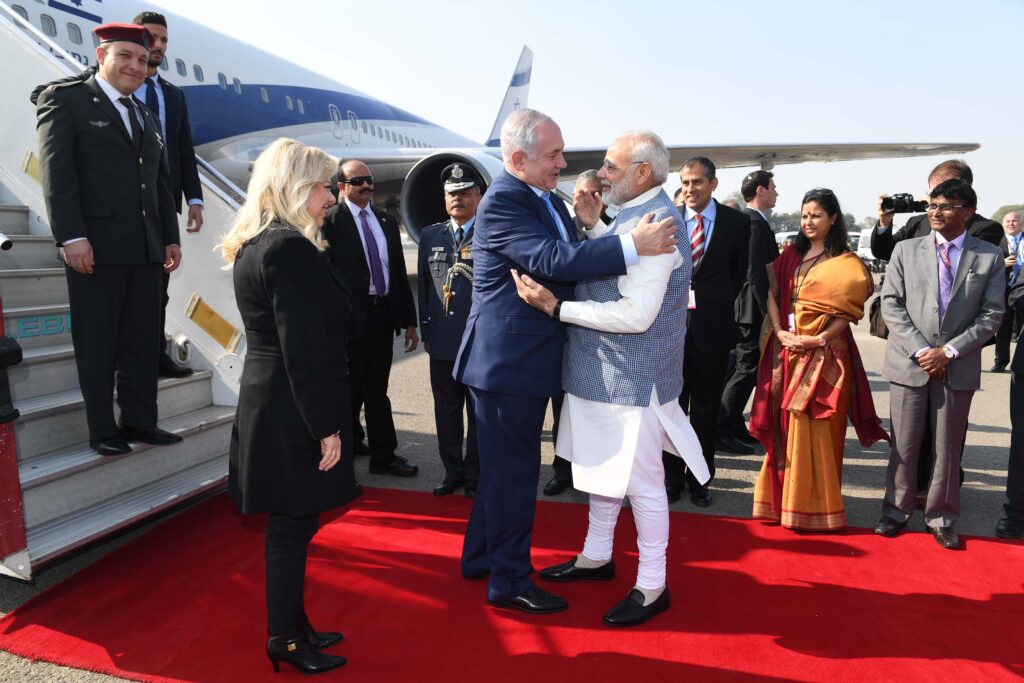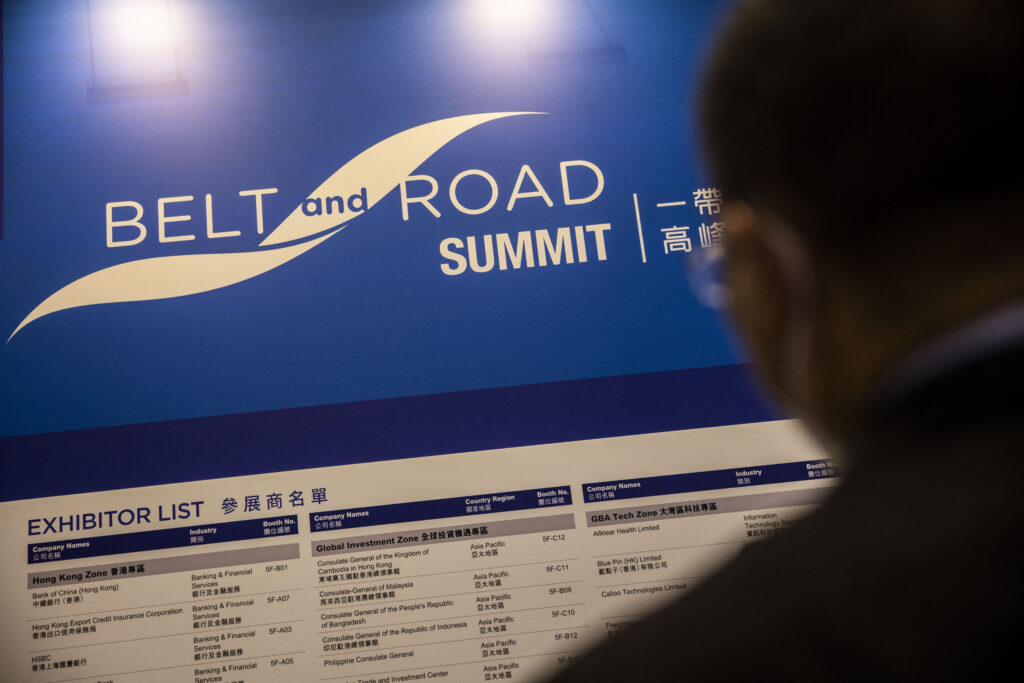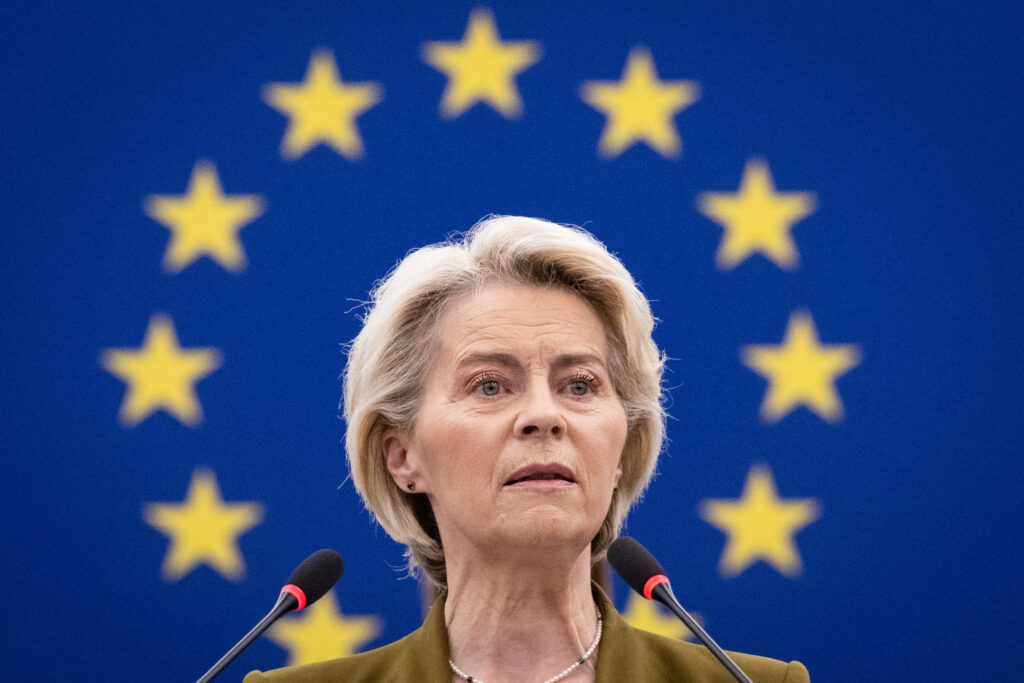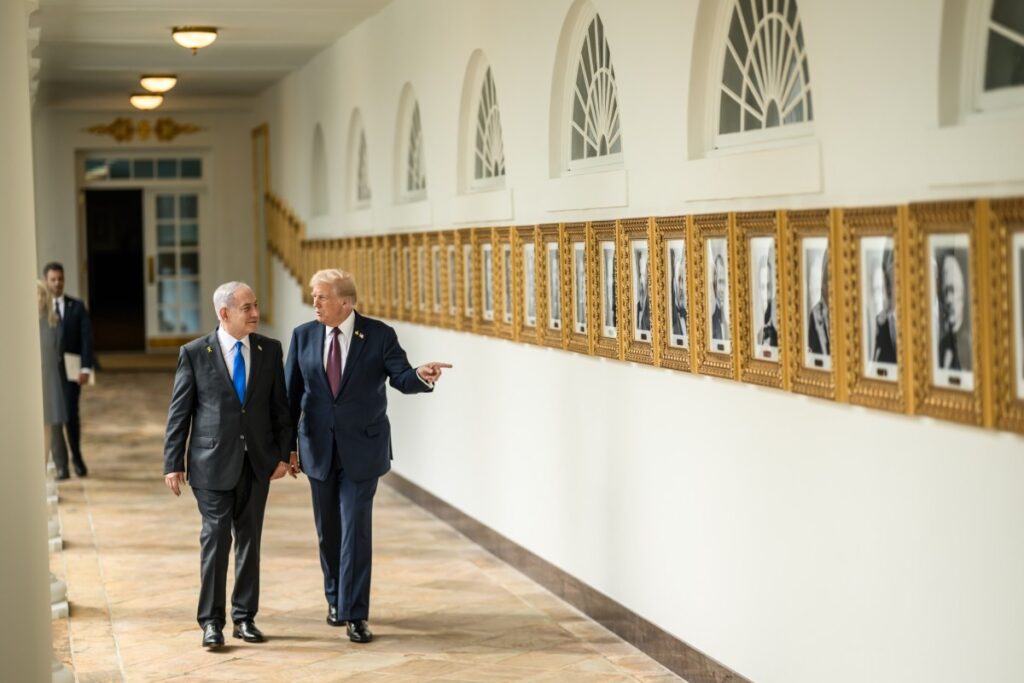Insights: Israel-Asia Relations
- -

CLICK HERE FOR THE PDF
Editor’s Introduction
The nexus between the Middle East and Asia – particularly China’s policy towards the Middle East – has garnered major attention in the media and policy circles in recent years.[1] This interest lies not only in the Arab countries’ relations with Asia but also in Israel’s relations with Asia. In the past decade, there have been many indicators pointing to those burgeoning ties – ranging from China’s involvement in Israel’s infrastructure (in particular, Haifa port[2]), the rise of Israel-India economic and security cooperation, and the expanding trade between Israel and Indonesia to the recent establishment of a new quadrilateral forum, the “I2U2”, comprising India, Israel, the United Arab Emirates and the United States.
But the recent hype about Middle East–Asia relations may be misleading and obscures the fact that they are not new: surely, the scale of political, economic and military exchanges between countries on the two sides is unprecedented but national leaders in each region have long eyed the other. The story of Israel-Asia relations is a case in point.
Back in 1953, David Ben Gurion, the founder of modern Israel and its then prime minister, foresaw, in one of his essays, “the waning hegemony of Europe and the rise of Asia”. Ben Gurion went on, “once again, two great and ancient nations – India and China – stride out into independence. Their weight in the scales of humanity is increasing and is likely to tip those scales more yet hereafter.”[3]
Despite those early signals, Israel-Asia ties have often been neglected.[4] The cultural ties between Zionism and Europe, the social fabric of a Jewish state initially made up of refugees escaping persecution in European countries, and later the Israeli partnership forged with the United States led many observers to conclude that the foreign policy of Israel was first and foremost about its policy with the Western world. This skewed view has led commentators to see the contemporary Israeli policy towards Asia as a mere by-product of the global shift of power from the West to the East.
In fact, Israel has long cultivated ties with Asia. It was the first Middle Eastern state to recognise the People’s Republic of China (in 1950) and to endorse Beijing’s “One-China” policy (at the expense of the nationalist forces in Taiwan at the time). Historians estimate that there were even contacts between Mao’s communist insurgency and the Zionist Organization as early as in the 1920s, with leaders of both movements feeling a sense of shared interests.[5]
India-Israel relations started a little later, in 1950, when Prime Minister Jawaharlal Nehru recognised the newly established state of Israel. However, successive governments in Delhi kept their distance from Israel: concerns over the reactions of the Indian Muslim community and India’s non-alignment dogma prevented the development of a bilateral partnership. It took several decades, and more specifically the end of the cold war, for the relationship to truly take off.[6]
In other places, the Israeli footprint in Asia was barely visible: after its separation from Malaysia in 1965, Singapore relied on Israeli military advisers – then nicknamed the “Mexicans” to preserve their secrecy – to help build and train the nascent Singapore Armed Forces;[7] in South Korea, primary school curricula have included the study of the Talmud, considered a major pillar of the learning experience for local pupils.[8]
Against this backdrop, the Middle East Institute at the National University of Singapore convened a two-day workshop in February 2023, gathering together scholars from across the world – including Israel, China, the United States, Turkey, Indonesia, France and Singapore – to explore the depth of Israel’s partnerships across Asia. The seminar delved into the political and economic drivers of these relationships as well as their scope (and limitations). Particularly, it discussed the evolution of Israel’s policy towards China, India and Japan. It also looked into lesser known areas, such as Israel-Azerbaijan relations and the development of Holocaust studies in China. Altogether, the seminar shed light on a research topic – Israel’s Asia policy – that is likely to expand in the coming years.
Israel and Great Power Competition in Asia
Today, Israel – like the rest of the Middle East – is aware of the need, and is determined, to nurture close ties with the rising powers of Asia even as it is closely monitoring the evolution of great power competition. Some of the contributions in this volume emphasise that Israel’s growing attention to Asia does not mean a shift away from the United States, with which Israel has forged a close partnership and benefited from for several decades. In other words, Israel’s Asia policy is not a pivot from West to East, but rather a pragmatic rapprochement with the region that economically and politically will shape world affairs in the 21st century.
This is why Israel’s relations vis-à-vis the rise of Asian powers constitutes the first pillar of this volume of Insights. At the centre of this theme lies the US-China rivalry and its implications for Israel. To better grasp the nuances of those developments, this volume presents readers with two different perspectives. Writing from China, Wang Zhen analyses the main factors that will affect the Sino-Israeli relationship and its evolution. Ehud Eiran, writing from Israel, makes a pragmatic argument that Israel remains closer to the United States, as it has been traditionally, although Israel-China economic and technological ties today are not inconsequential.
This volume also looks at the implications of great power competition for Israel’s relations with two other Asian powers: India and Japan. Nicolas Blarel analyses how the intensification of the China-India rivalry affects Israel and leads its decision-makers to rethink their rapprochement with both countries. Rotem Kowner, writing about Israel-Japan relations, explains that those ties are not defined by Israel but heavily conditioned by the Japanese side, in particular, Tokyo’s calculation of the assets and liabilities that the deepening of its partnership with Israel can bring to it.
Israel and the Evolving Framework of Middle East–Asia Relations
The other significant factor informing Israel’s Asian relations is the Abraham Accords that it signed with two Gulf states (the UAE and Bahrain) in September 2020, followed by Morocco and Sudan. The accords paved the way for a new wave of normalisation between Israel and the Arab and Muslim world. By extension, the accords enabled Asian countries, mindful of the need to avoid antagonising their domestic Muslim communities, to go public about their own ties with Israel.[9] As speculation over a potential Israel–Saudi Arabia agreement keeps growing, Asian governments are watching out for the sea change that such a development could trigger, if it were to come to pass.[10] Gedaliah Afterman and Theresa Hoffmann present the Abraham Accords as the stepping stone for a new diplomatic framework, one that gets Middle Eastern and Asian countries closer, as illustrated by the phenomenon of “minilaterals” like the I2U2.
Other articles in this volume look at the security dimension. Engin Koç shows how Israel’s Azerbaijan policy follows a realist logic of balancing the threat from Iran. He writes that Azerbaijan’s reliance on Israel’s military and technical support gives it military superiority over Armenia, in particular in the context of the second Karabakh war of 2020. Given that Israel constitutes a major source of inspiration for small states in Asia seeking effective security strategies for survival, Christopher Colley and Jean-Loup Samaan look at the lessons that Taiwan could learn from the Israeli military experience.
Israel’s Soft Power in Asia
Israel-Asia relations go beyond hard security considerations. Seventy-five years after its creation, Israel still fights for its mere recognition as a “normal” member of the community of nations. That process of “normalisation” cannot solely rely on security-driven policies and has to also build social and cultural bridges to Asia. This is why several papers in this volume investigate the lesser known dimensions of the Israeli engagement with Asia. Xu Shijie explores the development of Holocaust studies in China, emerging first after the normalisation of relations between China and the Western world in the 1970s and then expanding in the 1990s following the establishment of diplomatic ties between China and Israel.
Nazhath Faheem and Syera Anggreini Buntara suggest that interfaith diplomacy could possibly improve Israel’s relations with Indonesia, provided that such an initiative does not compromise Jakarta’s solidarity with the Palestinian cause. Finally, Jasmine Ashley Kolano investigates Israel’s recent public diplomacy efforts towards young Singaporeans, including cultural and religious programmes.
**********
This volume of Insights has sought to go beyond the typical Arab-centric and China-centric approach to studying Middle East–Asia relations. In focusing on Israel’s relations with Asia, we have tried to uncover the wide range of relationships that Israel has forged with Asia and the various dimensions these relationships have taken. We hope the articles in this volume will provide fresh perspectives to policymakers and researchers alike and will spur further scholarship.
Dr Jean-Loup Samaan
Senior Research Fellow
Middle East Institute, National University of Singapore
Image Caption: Prime Minister Benjamin Netanyahu and Indian Prime Minister Narendra Modi upon the Israeli premier’s arrival in India on 4 January 2018.
End Notes
[1] See among others, Dawn Murphy, China’s Rise in the Global South: The Middle East, Africa, and Beijing’s Alternative World Order (Stanford University Press, 2022); Jonathan Fulton (ed.), Routledge Handbook on China-Middle East Relations, (Routledge, 2022); Guy Burton, China and Middle East Conflicts: Responding to War and Rivalry from the Cold War to the Present (Routledge, 2020).
[2] Reuters, “Israel opens Chinese-operated port in Haifa to boost regional trade links”, 2 September 2021, https://www.reuters.com/world/middle-east/israel-opens-chinese-operated-port-haifa-boost-regional-trade-links-2021-09-02/
[3] Quoted in: Jean-Loup Samaan, Israel’s Foreign Policy Beyond the Arab World: Engaging the Periphery (Routledge, 2018).
[4] Apart from the notable exception of several academic volumes such as Yoram Evron and Rotem Kowner (eds.), Israel-Asia Relations in the Twenty-First Century (Routledge, 2023) and Jacob Abadi, Israel’s Quest for Recognition and Acceptance in Asia (Routledge, 2004).
[5] Miranda Bass, “In the Shadow of Giants: The Origins of the China-Israel Defense Relationship”, Israel Journal of Foreign Affairs 15, no.3: 481–497, 482
[6] P. R. Kumaraswamy, India’s Israel Policy (Columbia University Press, 2010); Nicolas Blarel, The Evolution of India’s Israel Policy: Continuity: Change, and Compromise since 1922 (Oxford University Press, 2015).
[7] Lee Kuan Yew, From Third World to First: Singapore and the Asian Economic Boom (Harper Collins, 2000); Mattia Tomba (ed.), Beating the Odds Together: 50 Years of Singapore-Israel Ties, (World Scientific, 2019).
[8] Ross Arbes, “How the Talmud Became a Best-Seller in South Korea”, The New Yorker, 23 June 2015.
[9] Gedaliah Afterman and Narayanappa Janardhan, “The Abraham Accords Bring the Middle East and Asia Closer”, Abba Eban Institute for Diplomacy and Foreign Relations, Reichman University, 14 September 2022, https://www.eng.arenajournal.org.il/single-post/issue12-afterman-janardhan-middle-east-asia-eng
[10] Felicia Schwartz, James Shotter, and Samer Al Atrush, “Joe Biden Makes His big Middle East Push: A Saudi Arabia-Israel Pact”, Financial Times, 9 August 2023, https://www.ft.com/content/40a87434-9852-4efe-8616-af2b7a0f21ed




